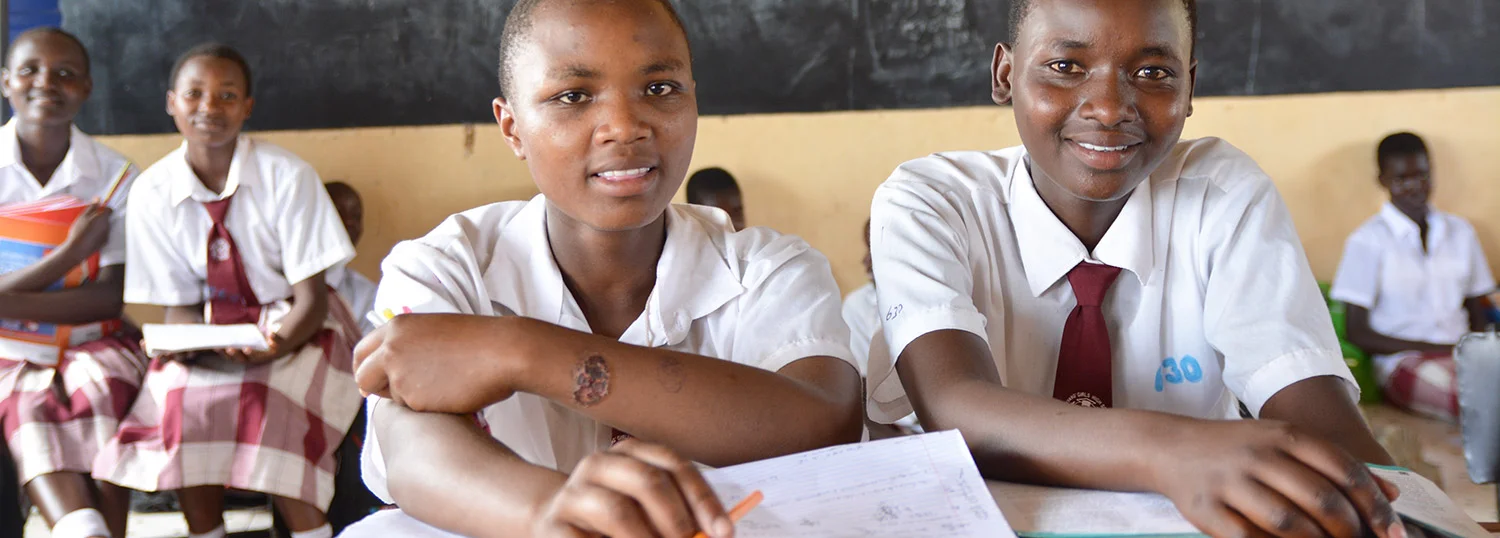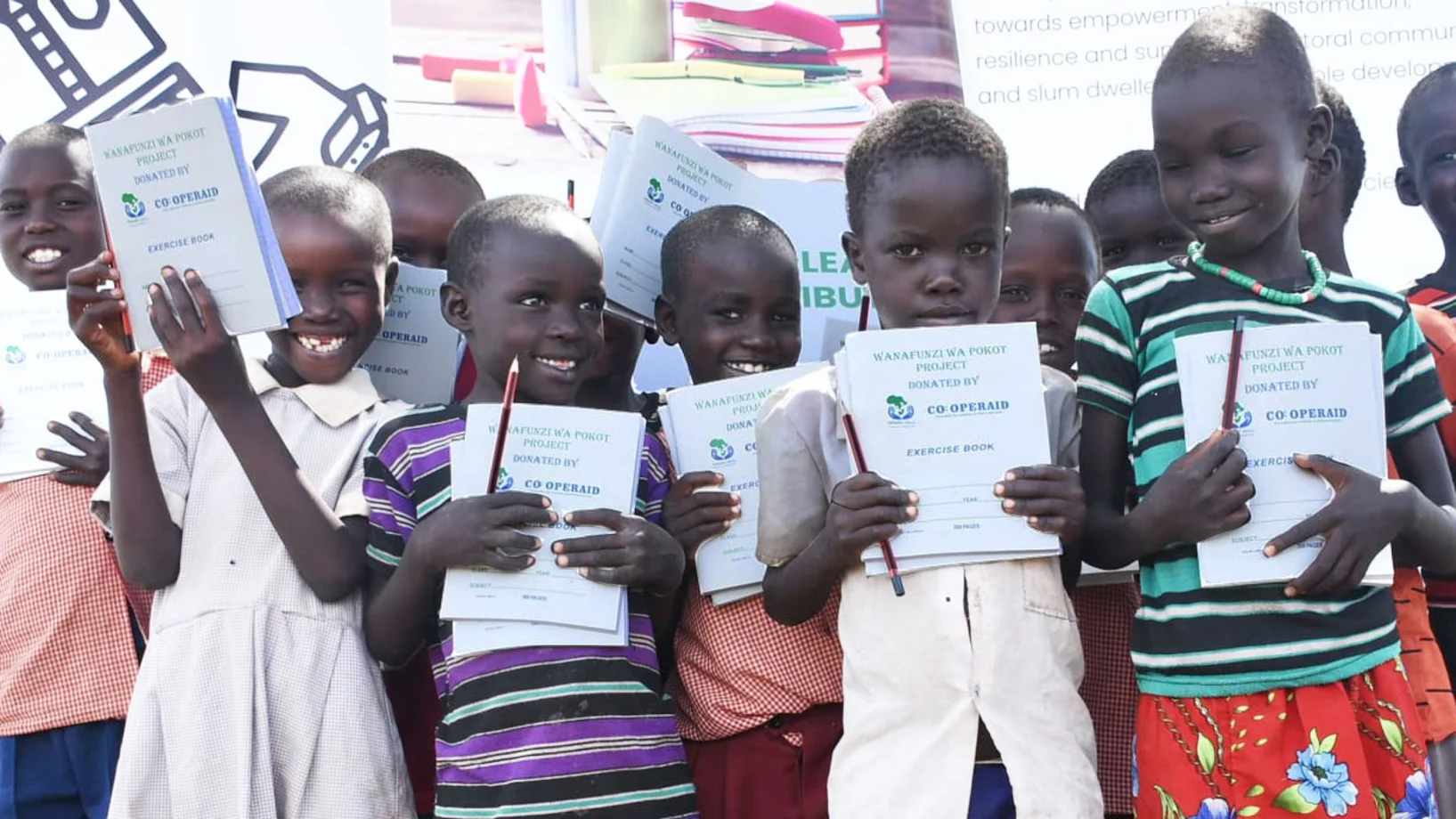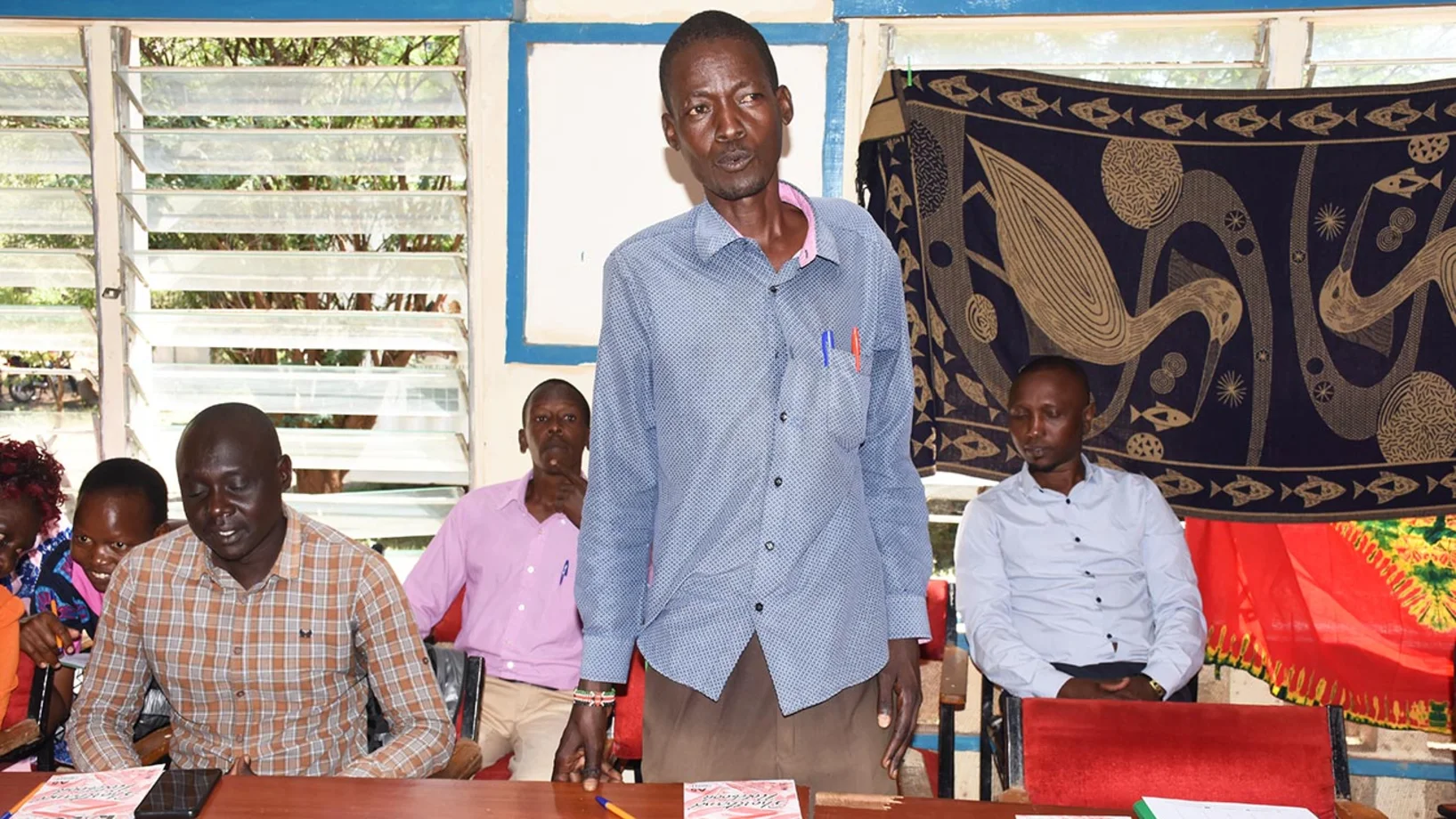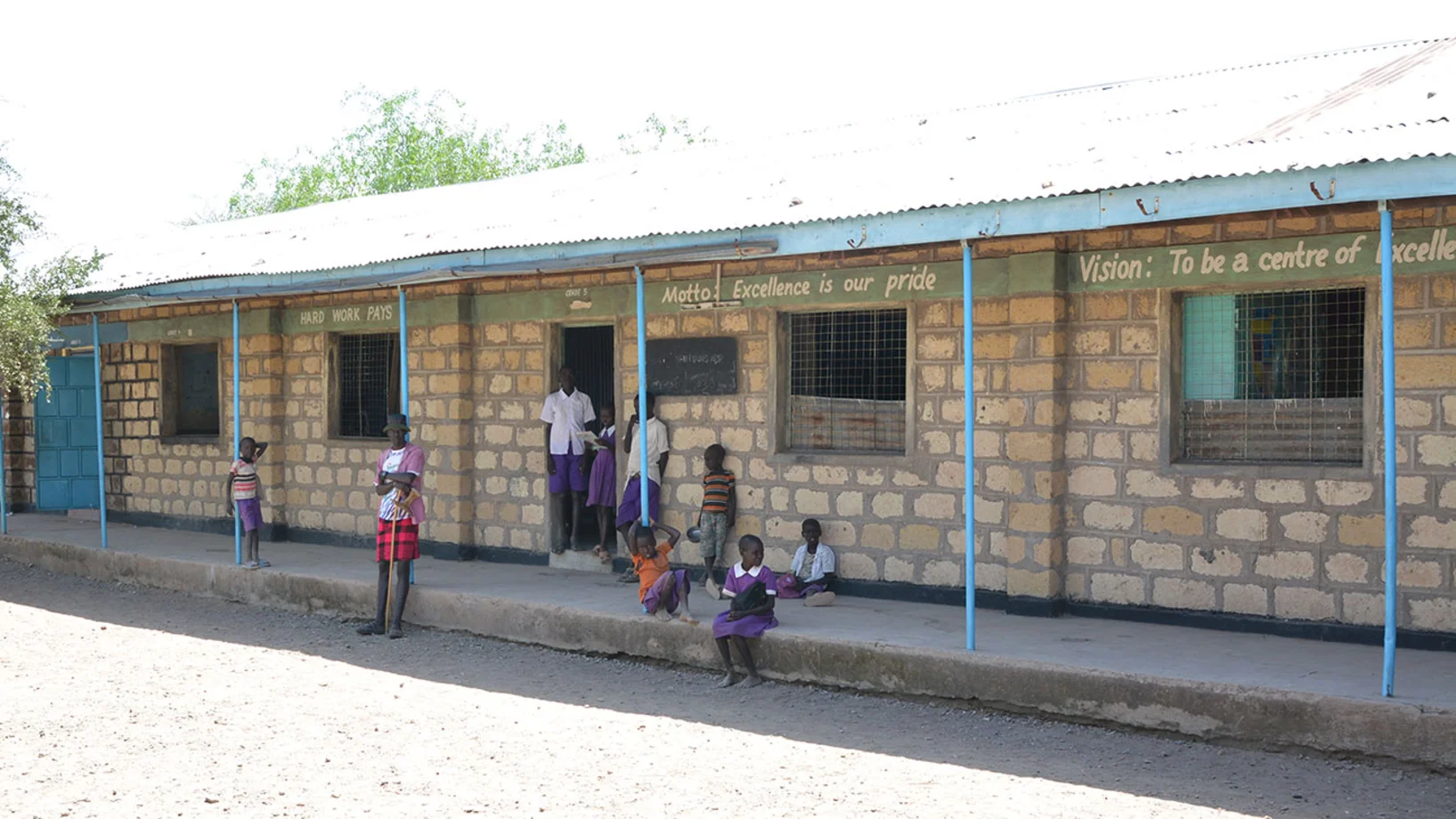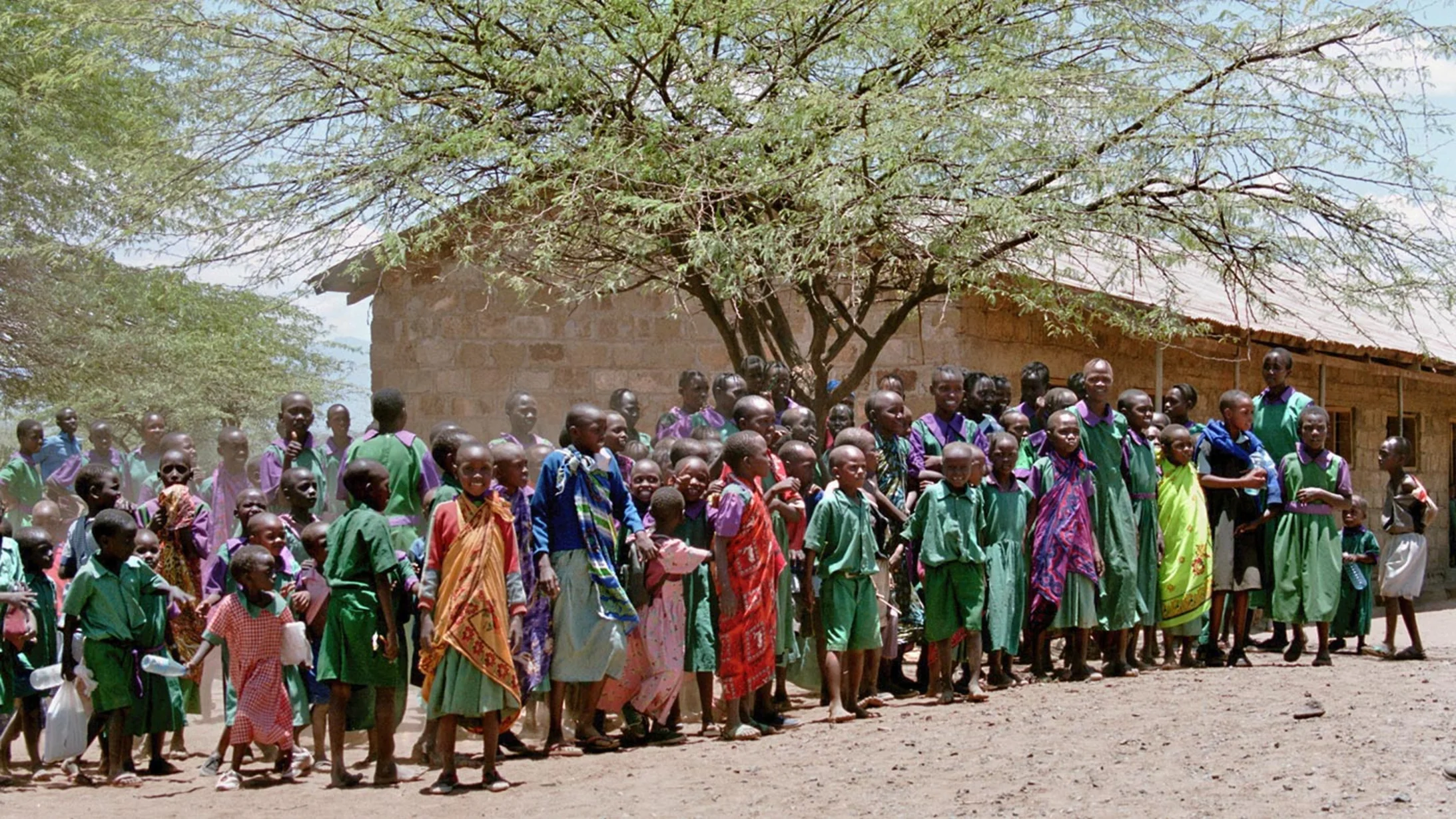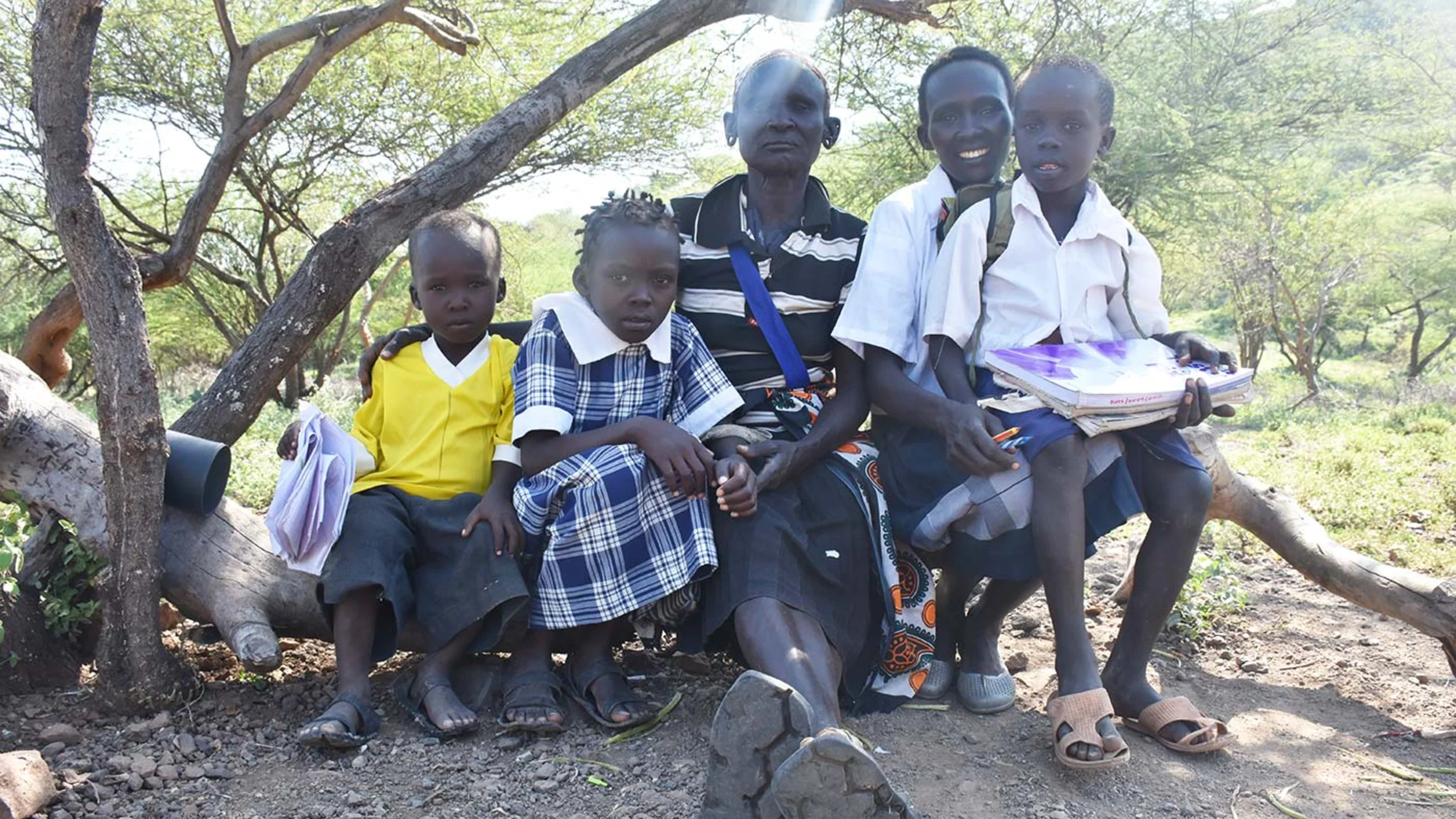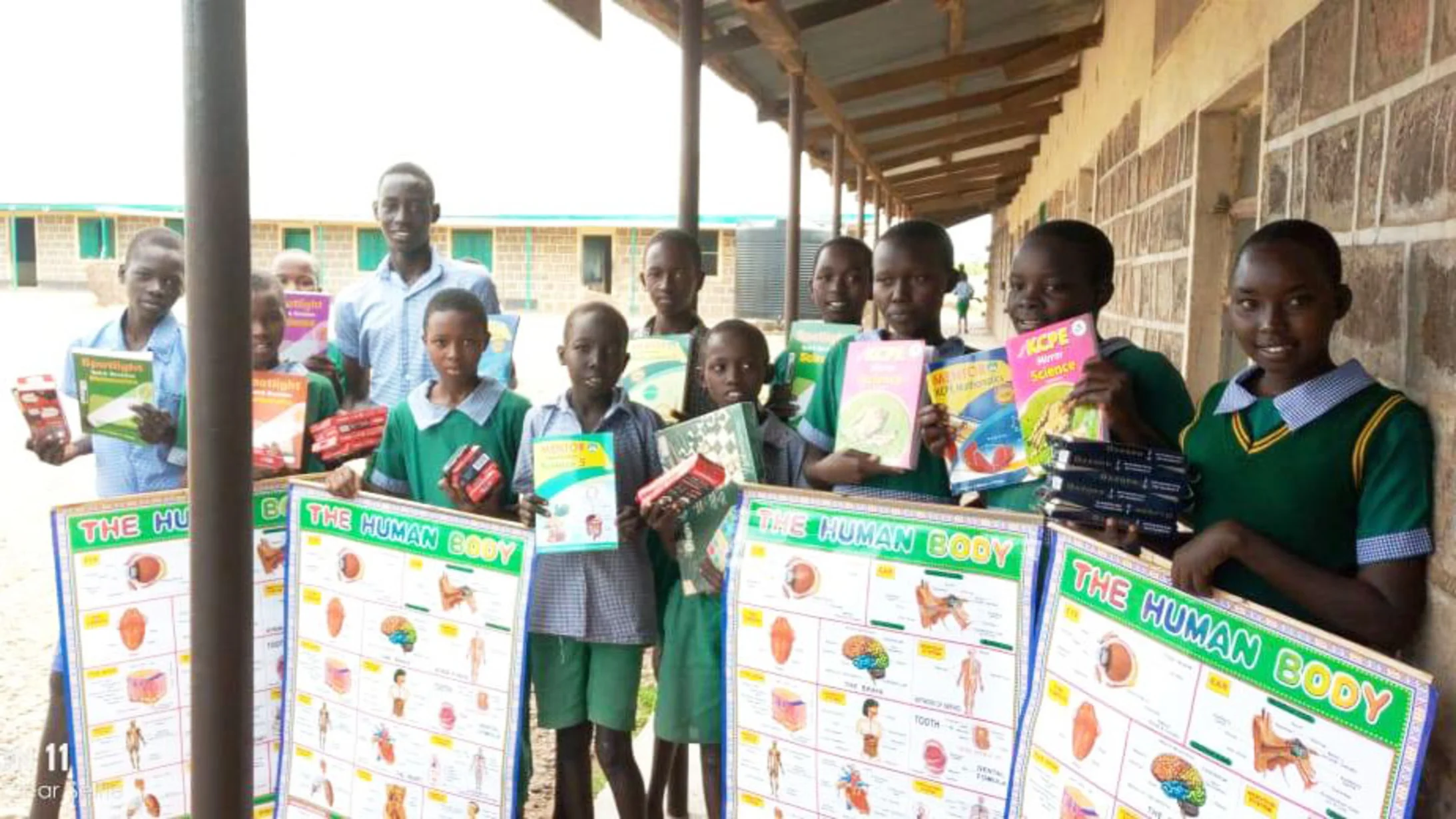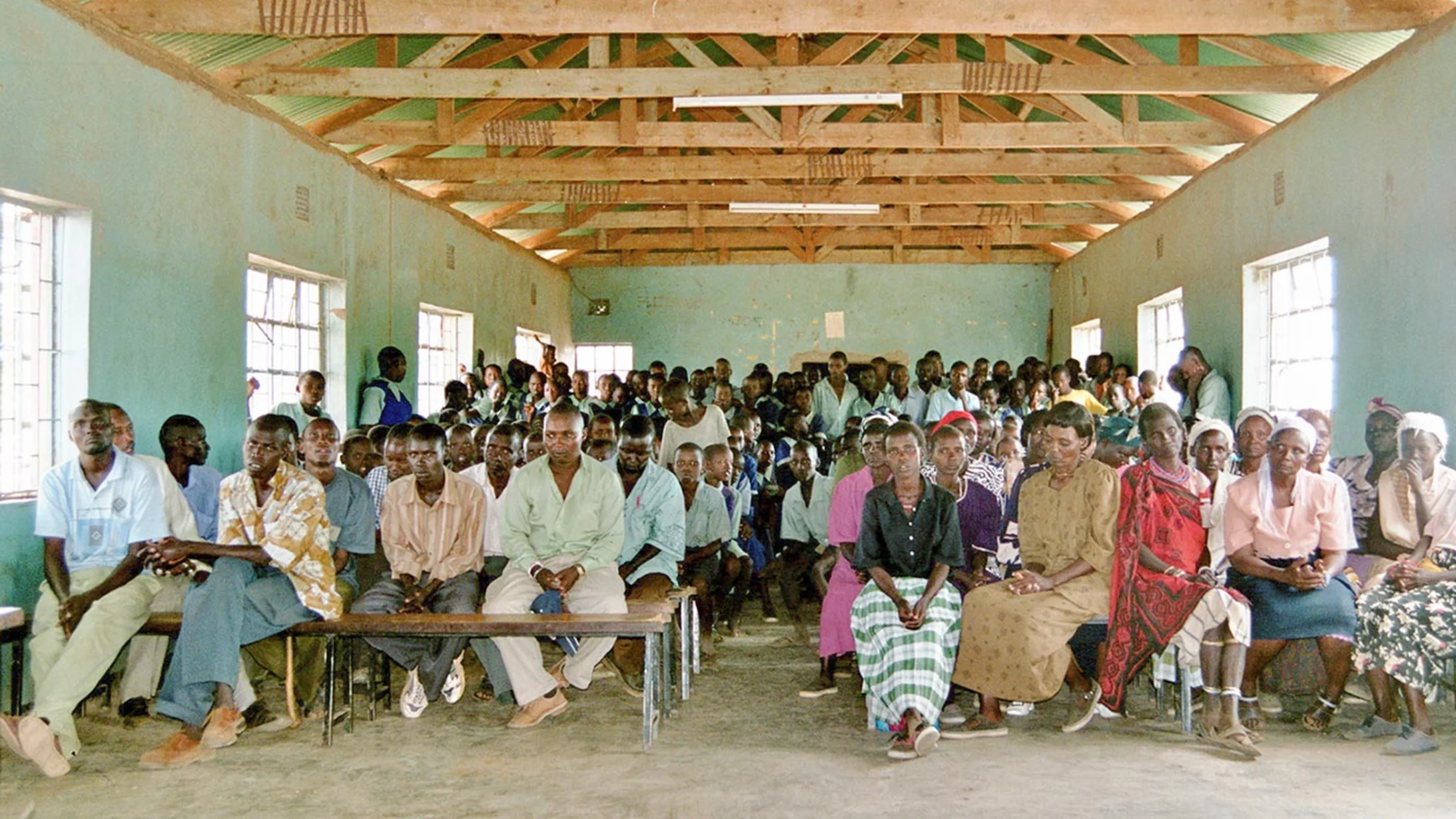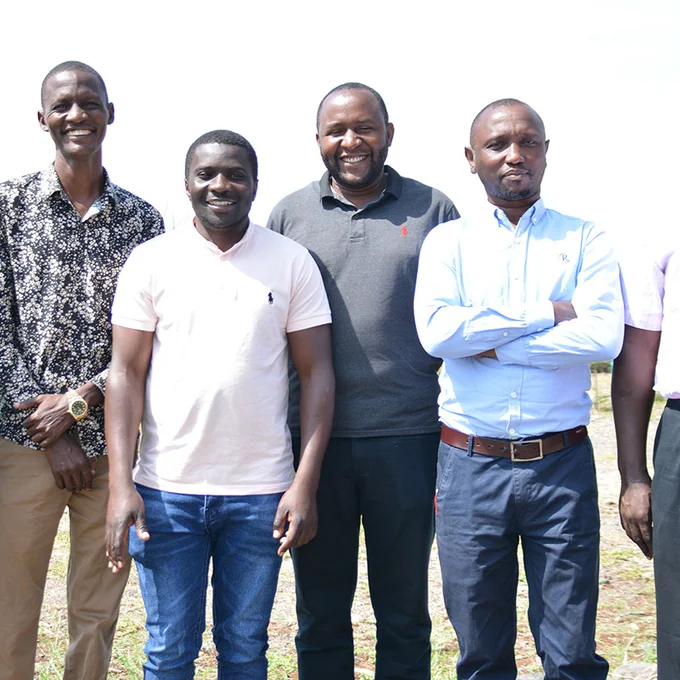About the education project in East Pokot, Kenya
Primary education in Kenya has made progress in recent years. However, there are large regional differences. Education for the children of the Pokot ethnic group in the East Pokot sub-district (Baringo district) is far behind. Alphabetisation is estimated to reach 30% only. In this area, people are nomadic herders. Education plays a little role in their lives. At the same time East Pokot more and more experiences severe droughts with food shortages and hunger. A consequence of climate change and population increase. The young generation urgently needs to find new ways.
CO-OPERAID and Hifadhi's aid project aims to strengthen primary education in East Pokot and introduce parents to school and education. The project cooperates with 12 elementary schools with kindergartens and 2 secondary schools. Investments go to the access to school and the quality of education, including teacher trainings. Access to school is facilitated through the distribution of school materials and uniforms to students and sanitary kits to adolescent girls. Public school events and community forums aim to promote the involvement of parents and communities. The project will serve about 3'700 children and 120 teachers annually. Overall, the education project aims to open doors to modern life for the young generation of the Pokot ethnic group.
Education for children of herders in East Pokot, Kenya: How you can help
Goals of the school project for children in East Pokot
Improved learning environment through equipment and environmental works
The partner schools are state schools for which the education authorities are responsible. However, their budget is not sufficient to ensure basic investments. The project helps out by purchasing sufficient materials for school lessons (e.g. blackboards, pens, posters, etc.). In addition, the environment is upgraded with playgrounds and sports fields (incl. play & sports materials), beautification of the school buildings and grounds, and installation of a model school garden for environmental education.
Individual support for school children from poor families
The shepherd families have little money at their disposal. Therefore, the project provides support to reduce the expenses for education of the poorest families. It provides learning materials for school children (exercise books, pens, pencils, sharpeners, erasers), school uniforms, hygiene items for girls (reducing absenteeism during periods), and pays fees for final exams.
Support for teachers and improved quality of education
Teachers receive too little support. The project aims to ensure that they have the opportunity to engage with the pedagogical process. It conducts workshops on the "Professional Learning Community" (PLC), mainly to share experiences and learn from "best practices." An accelerated course of instruction is introduced for children who start school too late and who are supported to complete grades quicker. New, additional lessons (school library, reading competition) promote reading, comprehension and creativity.
Raising awareness and involving communities in education
Education has played a marginal role in life in East Pokot. Accordingly the value of education is low. The project aims to involve parents and families with education. It ensures that the school committees, including the parents' council, do not just exist on paper only but actually take action. Improved school management, including exchanges between school, communities and authorities, is key to mobilize beneficiaries beyond the school (WEZESHA approach). The project organizes public school events at which, among other things, children and school staff are awarded for best efforts.
Responsible native Partner-NGO in Kenya
FAQ's
The school project in East Pokot in partnership with Hifadhi was launched in June 2021. After developing the approach during one year, the project is planned to be implemented until the end of 2024..
School children from the Pokot ethnic group lag far behind the rest of the country in terms of school enrollment and literacy rates. However, investment in education in East Pokot is poor. The Pokot have no lobby and national politics cares little about them. Lack of education is a major reason why development lags behind and people live marginalized lives. Dropout rates from primary school are also high due to negative learning experiences and for girls due to the onset of adolescence (while often enrolling late in school).
The partner schools of the project are state schools. They will be continued after the end of the project. Improvements at the infrastructure will serve several generations of schoolchildren. The project initiates processes that will continue to have an impact (methodology, additional subjects, improved school management, community involvement) even after project conclusion. The goal of the project is sustainable improvement.
Hifadhi Africa Organization (HAO) is a Kenyan based non-governmental, non-profit organization established in 2013 and registered as a national Kenian charity. HAO works as a development, advocacy and youth empowerment organization in slums and pastoral regions. HAO’s focus is collaboration with underprivileged and marginalized communities in effort to empower them, identify cause problems and enable them to find appropriate solutions to overcome poverty and dependence. The Organization is dedicated to realization of gender equality and the rights of the marginalized and vulnerable communities. One of the founders and today's co-director is Collins Nakedi, child of an East Pokot herders family. As a school child, he attended a school that was supported by CO-OPERAID! (see this link)
